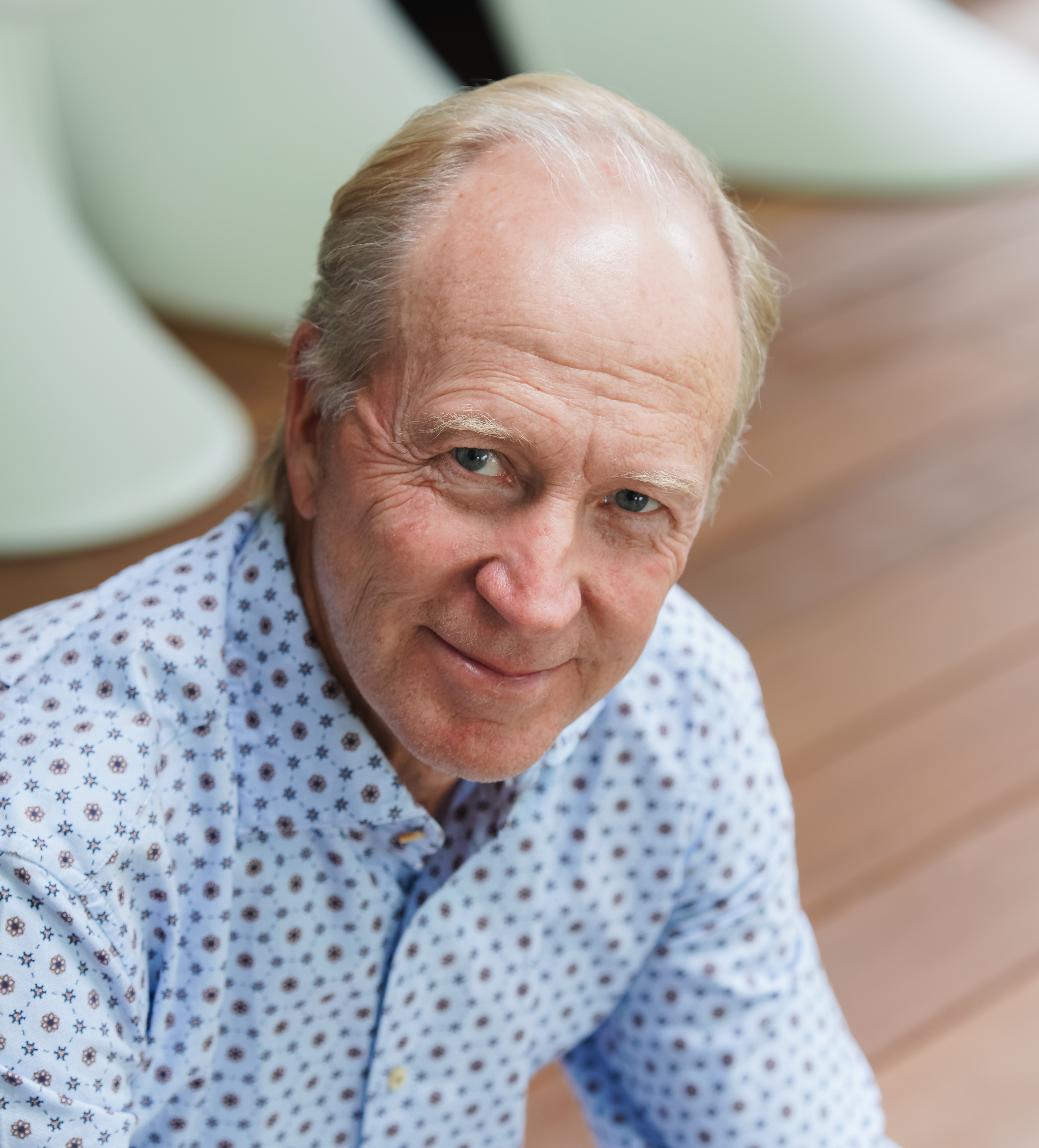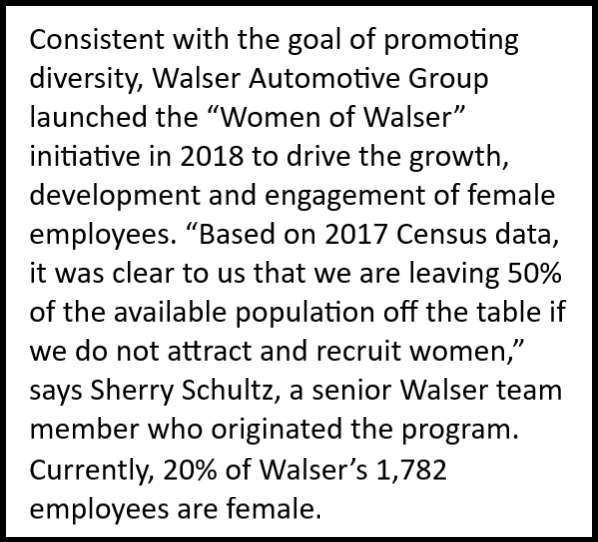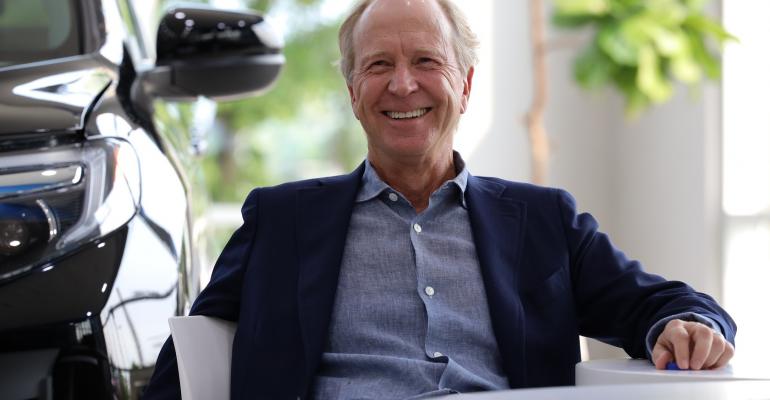Like many car dealers, Paul Walser, a partner in the Walser Automotive Group of Edina, MN, comes from an automotive background.
His grandfather, an Oldsmobile zone manager in Minneapolis, granted Jack Walser, Paul’s father, an Oldsmobile franchise in Hopkins, MN, in 1955. “I don’t think a regional manager could get away with that behavior today,” says Paul, who becomes chairman of the National Automobile Dealers Assn. at the group’s virtual 2021 Conference and Exposition Feb. 9-11.
Walser started working at age 16 at his father’s Ford dealership in Hopkins. He sold used cars in the summer during college, then advanced to finance manager, used car manager, general sales manager and general manager as the company expanded.
Paul, his younger brother Andrew, and Jack, each with a 33% ownership stake, grew the group to 12 dealerships by 2003, at which point the assets were divided with the brothers retaining eight stores and Jack the remaining four. Paul turned the CEO role over to Andrew in 2018 to focus more on NADA.
The Walser Automotive Group today comprises 27 dealerships (including two used car locations) representing 20 manufacturers, mainly in Minnesota. There also are seven dealerships in Kansas, three in California and one in Illinois. Two more points in California and Minnesota will go online by the end of this year.
Walser’s total revenue grew from $1.3 billion in 2018 to $1.47 billion in 2019 and topped $1.5 billion in 2020 in the face of the COVID-19 pandemic. Total unit sales increased from 46,671 in 2018 to 50,207 in 2019 and 50,497 in 2020. Used car sales outpaced new cars in all three years.
Walser doesn’t disclose profitability, and he doesn’t characterize any one area as the primary profit driver. “We enjoy lesser costs than what is typical for dealerships,” he tells Wards. “These cost reductions are the result of software development, efficiency due to centralized functions and the elimination of traditional silos such as F&I.”
Wards spoke to Walser (pictured below, left) in advance of the virtual NADA Conference and Expo. Following are edited excerpts.
Wards: What are your goals for NADA in 2021?
Walser: Number one: We have a new president and CEO, Mike Stanton, who has replaced Peter Welsh after a wonderful eight-year run. I want to help that transition, make it smooth and get Mike connected with dealers and automotive trade association executives around the country.
Second, I’m looking to enhance dealer engagement with NADA. Dealers still don’t really know the full extent of what NADA does and how important the work is. We have to provide better communication and understanding of the work that’s getting done.
 Third, I want to offer dealers more robust solutions related to the challenges the industry faces with diversity. There have been a lot of efforts by OEMs and dealers and other industry stakeholders over the course of many years, but racial and gender diversity remain relatively stagnant. This conversation is happening in many industries all over the country. We, too, need to play our part in advancing this initiative.
Third, I want to offer dealers more robust solutions related to the challenges the industry faces with diversity. There have been a lot of efforts by OEMs and dealers and other industry stakeholders over the course of many years, but racial and gender diversity remain relatively stagnant. This conversation is happening in many industries all over the country. We, too, need to play our part in advancing this initiative.
Finally, I want to improve the dealer-OEM relationship. We need to look at this through the lens of the customer and not be so concerned with fighting over the scraps between ourselves.
Wards: What can dealers and the factories do to better view their world through the eyes of the customer?
Walser: If you look at it from the customer’s perspective, you’d make some pretty significant changes. Get some people together in a room and start asking, how do we do this better? It shouldn’t take four hours to buy a car – let’s start with that. People are used to buying a product and having it on their doorstep the next day. We have to let people fall into the car buying category they choose for themselves, but no matter which route they choose we have to make it easier, faster and more transparent. Instead of having conversations about how can we have creative incentives to sell more cars, what we really ought to talk about is how do we improve the experience and what tools are available to us to make this a much better environment for customers.
Wards: Can the traditional friction points between OEMs and dealers, like stairstep incentives, be addressed?
Walser: Are stairsteps good for dealers? I don’t know. Are they good for OEMs? I don’t know. Are they good for customers? Absolutely not, because they create a lack of confidence in the integrity of pricing and it makes the process longer. You’ve got to deal with all these incentives, all the paperwork associated with them, and you’ve got to establish what customers qualify for what. Anything that becomes complicated adds time. That should immediately tell us to get away from relying on those kinds of incentives because they mess things up. If a car isn’t moving because demand has diminished, then let’s figure out a simple way to provide direct incentives to customers that allow them to buy the vehicle at its current value.
Wards: Talk about the need for diversity in the industry.
Walser: From a NADA perspective, there are just not the proper proportions of dealers in the country that are either minorities or women. It doesn’t look like the population. Like so many industries, we are predominantly white males. If you’re looking at everything through the lens of white guys, you’re not going to have a full understanding of what the customer needs are. Secondly, morally it’s the right thing to do. How do we do that? We have a wonderful organization in the National Association of Minority Automobile Dealers trying to accelerate the growth of African-American dealers but honestly, the results just aren’t there. Manufacturers have made an effort to distribute open points particularly to minority candidates. That really hasn’t been successful. Why is that? In my opinion, it’s because the strategies are not sustainable. If a manufacturer tells a minority candidate that they will give him a store and provide the minimum capital on a loan basis, but if you haven’t been properly trained and you don’t have a history in this business, the likelihood is that you will not succeed. If you don’t have adequate capital to help you get started and make it through tough times, you are not likely to succeed. We have an obligation if we are sincerely going to go down this path to make sure we solve those problems.
Wards: What have dealers done in the past year to mitigate the effects of the pandemic?
Walser: This thing hit us in March like a ton of bricks. By May we’re selling cars. Dealers are a very entrepreneurial lot. We react to difficult circumstances initially the way most people do, but at the end of the day you get your team together and say, ‘This is the hand we’re dealt. What are we going to do?’ Dealers are glass-half-full people, and they figure out a way forward. As I look back on this thing…it accelerated change that was coming anyway. Dealers had to quickly adapt in ways that should be part of our permanent playbook. Do some customers want to transact without coming into the store? Of course, some do. Do some want to have their cars picked up for service? Yep. Do customers want their cars cleaned and sanitized before they pick them up? Sure. There are any number of things that this pandemic forced us to do quickly that I would submit to you most dealers want to continue to do well after the pandemic is over.
 Wards: How is the NADA Conference and Exposition going to look this year since it is virtual?
Wards: How is the NADA Conference and Exposition going to look this year since it is virtual?
Walser: You will be absolutely shocked, as I am, at what has been created. I hope everyone who attends comes away understanding that this will be the best investment they have ever made in their lives. For $200 they’re going to get more content than you can even imagine. In a lot of ways, it’s going to be better than a live show in the sense that you have no transportation or hotel costs and the price of entry is cheaper. At the touch of a finger, you can have access to vendors, workshops, speakers and great OEM participation with make meetings. It’s going to be really dynamic.
Wards: What is NADA’s lobbying strategy for 2021?
Walser: I don’t think our strategy for engaging leaders in D.C. changes much from year to year. Dealers operate in literally every congressional district in the country, so we have a long history of bipartisanship and working with hundreds of members of Congress whether they are Republicans or Democrats. We want to make sure that the decisions made in Washington are made with a full understanding of how those decisions could impact our ability to serve our customers and take care of our employees. We’re a big fish. We contribute a million paying jobs in this country, close to $70 billion in annual employee wages. Almost 19% of all U.S. retail sales are in our industry, and more than $90 billion in state sales taxes are paid annually. We have a tremendous impact on the overall economic health of this country. I think most legislators understand that.
Wards: Has NADA reached out to the Biden Administration?
Walser: There has been some outreach. I don’t know the specifics or the timing, but the conversations are ongoing. We will be very engaged. The people who are part of this administration are known to us, and we’re very confident that we’re going to be able to communicate effectively with their team.
Wards: What is NADA’s position on California’s proposal to ban gas-powered vehicles?
 Walser: Dealers are excited about the idea of selling zero-emission vehicles. But you can’t just flip the switch tomorrow and be selling all electric vehicles. We have high battery costs that make ZEVs out of reach for most customers, there’s a lack of dependable recharging stations, there are technology limitations on truly fast charging and we have an electrical grid that is not robust enough to support mass numbers of EVs. All this stuff leads to a large consumer base that isn’t currently willing or able to abandon a century of driving dependable and affordable ICE vehicles. Franchised dealers working with the OEM partners, local communities and customers have to overcome these obstacles.
Walser: Dealers are excited about the idea of selling zero-emission vehicles. But you can’t just flip the switch tomorrow and be selling all electric vehicles. We have high battery costs that make ZEVs out of reach for most customers, there’s a lack of dependable recharging stations, there are technology limitations on truly fast charging and we have an electrical grid that is not robust enough to support mass numbers of EVs. All this stuff leads to a large consumer base that isn’t currently willing or able to abandon a century of driving dependable and affordable ICE vehicles. Franchised dealers working with the OEM partners, local communities and customers have to overcome these obstacles.
Wards: Will NADA be knocking on doors in Sacramento hoping to reverse any of these decisions?
Walser: That’s probably a better question for the California Auto Dealers Association. I don’t know if NADA will take an active role in that.





